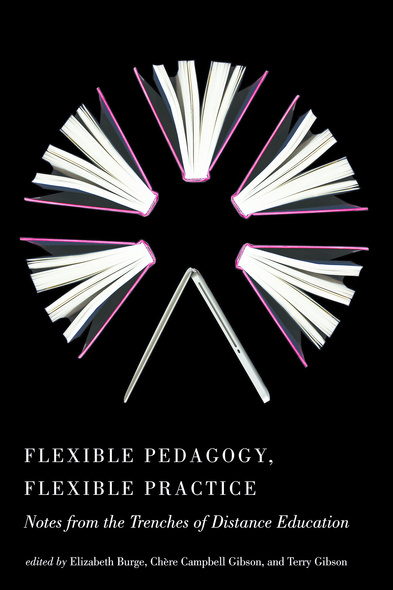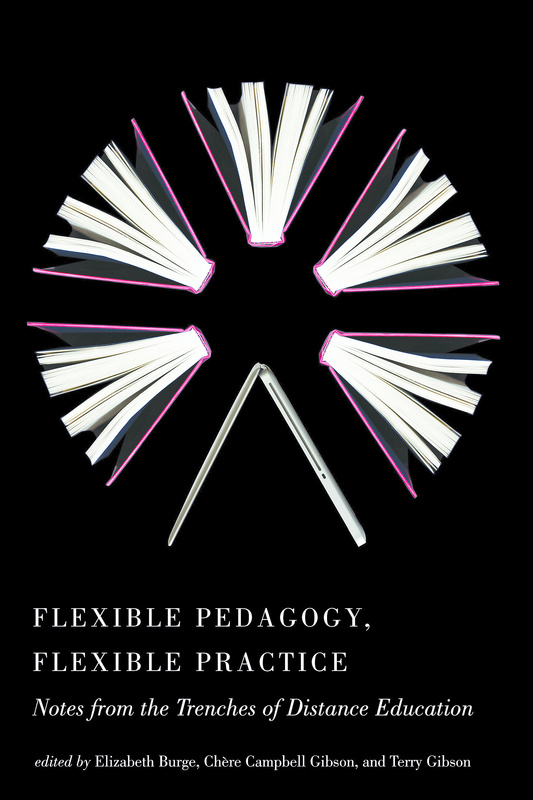Flexible Pedagogy, Flexible Practice
Notes from the Trenches of Distance Education
Flexibility has become a watchword in modern education, but itsimplementation is by no means a straightforward matter. FlexiblePedagogy, Flexible Practice sheds light on the oftentaken-for-granted assumptions that inform daily practice and examinesthe institutional dynamics that help and hinder efforts towardsflexibility. The collection is international in scope, drawing on theexperience of specialists in distance education from North America, theUnited Kingdom, Australia and New Zealand, South Africa, Singapore, andJapan. Contributors to the volume were asked to reflect candidly andcritically on questions that include:
- What precisely is flexible learning?
- Who or what is driving the flexibility agenda, and for whosebenefit? And who or what is resisting it?
- What challenges must be overcome in order to achieve flexibility,and what are some of the compromises it can entail?
In addressing these and other issues, the authors offer a wealth oftheoretical insights and a frank assessment of their practicalexperience. Their report from the trenches will be invaluable to anyoneseeking to broaden the reach of higher education.
Chère Campbell Gibson is professor emerita of adulteducation at the University of Wisconsin-Madison. She established theCertificate of Professional Development in Distance Education hasserved on numerous editorial boards. Terry L. Gibsonis professor emeritus of adult education at the University ofWisconsin-Madison. His research has focused on instructional settingsin the home, in the workplace, and at educational institutions.
Foreword / Frits Pannekoek
Introduction: Why Look at Flexibility? - ElizabethBurge
ONE › Clarifying the Concept
Introduction
1 › Flexibility in the Twenty-First Century: The Challenge ofWeb 2.0 - Denise Kirkpatrick
2 › Students’ Perceptions: Flexing Pedagogy and Practice- Julie Willems
3 › Structured Flexible Learning: Making Informed DesignChoices - Der-Thanq Chen, Rose Liang, and Yu-mei Wang
TWO › Identifying Driving and RestrainingForces
Introduction
4 › Flexible Distance Education for Social Transformation -Milly Daweti and Jean Mitchell
5 › Politics, Pedagogy, and Productivity as Drivers ofFlexible Learning - Cathy Gunn
6 › Cultural Perceptions of Flexibility in Asian HigherEducation - Colin Latchem and Insung Jung
7 › Openness and Flexibility in New Zealand: Victories andChallenges - Mary Simpson and Bill Anderson
THREE › Surviving the Swamps of EverydayPractice
Introduction
8 › Before the Fall: Breaking Rules and Changing Minds -Darcy W. Hardy
9 › Implementing an Online System: Voices of Experience -Andrew Higgins and Mark Northover
10 › Adding Flexibility to Higher Education Using OERs:Lessons from the Open University - Andy Lane
11 › From “Here” to “There”: The RockyRoad to Flexibility - Kay MacKeogh and Seamus Fox
12 › Where Has the Effort Gone?: The Quest to Sustain Momentum- Darien Rossiter
13 › An Elephant’s Lifetime, the Patience of Job -Yoni Ryan
14 › The Garden of Learning Delights: The Librarian’sTale - Non Scantlebury and Gill Needham
15 › Reflecting on Swamp Life - Arthur L. Wilson
16 › Mapping the Driving and Restraining Forces on Flexibilityin Higher Education - Chère Campbell Gibson and TerryGibson
FOUR › Admitting Compromises
Introduction
17 › The Fog of Flexibility: The Riskiness of FlexiblePost-secondary Education in Australia - Terry Evans and PeterSmith
18 › Flexing Costs and Reflecting on Methods - GrevilleRumble
19 › “Which Is to Be Master”?: Reflections onEthical Decision Making - Melody M. Thompson and LornaKearns
FIVE › Voicing Contrarian Opinions
Introduction
20 › The Paradoxes of Flexible Learning - DavidHarris
21 › Transformational Technologies: Exploring Myths andRealities - Adrian Kirkwood
22 › “Plenty of Saps” - Alan Woodley
23 › What Happens in the Stretch to Flexibility? -Katherine Nicoll
Conclusion: The Challenge of Weaving Principles with Practice -Elizabeth Burge, Chere Campbell Gibson, and Terry Gibson
Index





